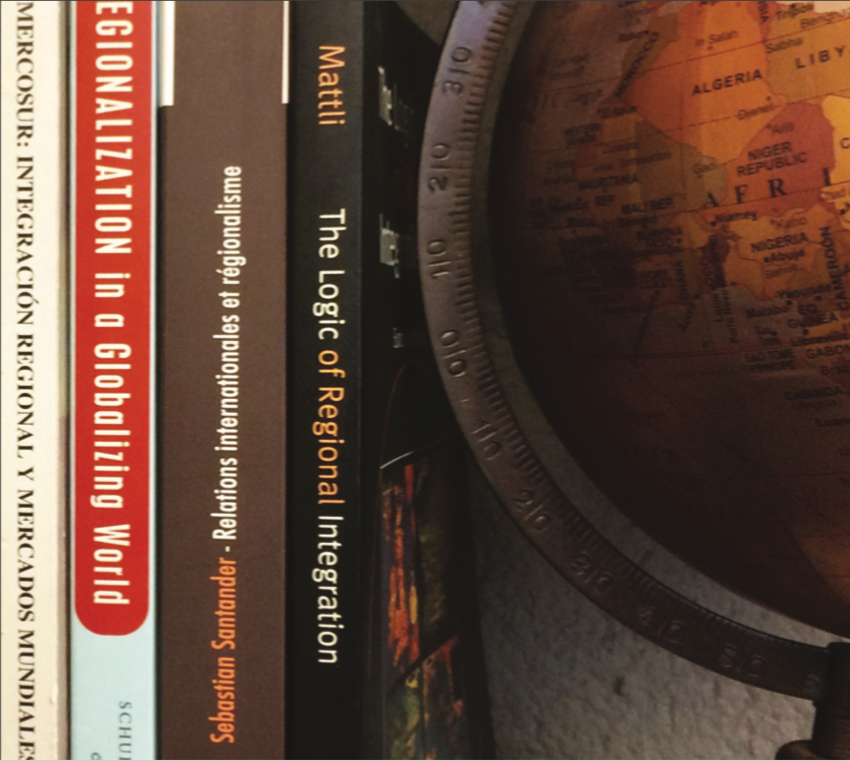- Accueil
- 5/2024 - Resilience of global regionalism in times...
- Heterarchy in World Politics, by Philip G. Cerny (ed.), London, Routledge, 2023.
Visualisation(s): 568 (13 ULiège)
Téléchargement(s): 0 (0 ULiège)
Heterarchy in World Politics, by Philip G. Cerny (ed.), London, Routledge, 2023.

1In this latest exploration of the intricacies of global governance, the author employs a multidisciplinary approach to challenge the conventional state-centric paradigm. His aim is to provide a comprehensive framework that acknowledges the complexities inherent in world affairs. The central concept introduced is ‘heterarchy’, defined as “the coexistence and conflict between differently structured micro- and meso-quasi-hierarchies that compete and overlap not only across borders but also across economic-financial sectors and social groupings” (p. 1). Building upon the theoretical framework of Global Political Economy (GPE), the book delves into the dynamics of transnational decision-making, with a particular emphasis on its heterarchical settings. It raises crucial questions about the influence and empowerment of strategically positioned agents, both in the private and public sectors, within the context of multi-nodal competing institutions with overlapping jurisdictions. As a consequence, the book explores how these dynamics may undermine state capabilities, potentially allowing networks and sectoral differentiation that shape transnational policy-making.
2The book is divided in two sections. The first section invites scholars from various disciplines, including political science, history, anthropology, and other branches of the social sciences, to engage in a discussion about the transition from postinternationalism to a society guided by heterarchy. This discussion draws on a wide range of theoretical insights, encompassing elements from social theory (such as anomie), international relations theory (such as New Medievalism), and frameworks rooted in GPE (such as globalization). Within this section, there is a comprehensive exploration of the concept of heterarchy in terms of how it transforms the role of the state and underscores the emergence of new stakeholders in global affairs. Additionally, it takes a deep dive into the historical roots of heterarchy, offering valuable insights into its longstanding foundations. This section plays a pivotal role in enabling readers to grasp the multifaceted dimensions of heterarchy.
3In its second section, the book addresses specific issues to illustrate the added analytical value of the heterarchy framework. Some chapters aim to explore broader topics, such as capitalism, global governance, or power in a general sense. In doing so, they delve into how heterarchy contributes to the broader theoretical discourse. Other chapters apply the concept of heterarchy to specific areas, including global cities, financialization, and global change. Ultimately, a group of authors delves into practical applications of heterarchy through case studies. These case studies encompass areas like the World Trade Organization dispute settlement, global internet governance, and state competition networks.
4Heterarchy is a comprehensive concept that allows for the simultaneous exploration of various topics related to the complexity of decision-making in world affairs. It unravels key aspects of the current landscape, including the blending of interests between the private and public sectors, the decentralized functioning of the state (a reactive state), and the capture of interest groups to promote vested interests in global governance, which is particularly crucial within international organizations. Nevertheless, certain aspects still warrant debate.
5The usefulness of the concept is relatively straightforward, but its theoretical implications are more challenging to identify. Indeed, there is a lack of effort to elucidate the epistemological choices embedded within heterarchy. While some authors draw on Marxist ideas, others adopt a more neo-functionalist perspective, even though the concept’s description appears rooted in post-internationalism. While the concept can bridge gaps in many aspects of these approaches, it can also lead to a certain inconsistency. A central question arises regarding how to address economic determinism when applying heterarchy: ‘Should we consider structural defining guidelines or, conversely, a more liberal, individualistic form of agency?’
6An additional, albeit central, unaddressed question pertains to how to operationalize heterarchy. Similarly, in line with the theoretical challenges mentioned earlier, the book provides few methodological insights, leaving the reader ill-prepared for a consistent use of the concept. While striving to be all-encompassing, heterarchy overlooks some key debates, such as whether governance should be approached from a fragmented or polycentric perspective. In this regard, it falls into the same pitfalls as its precursor concepts like ‘multinodal politics’ or ‘fragmegrative’, as none of them offer a clear framework for considering governance while applying heterarchy. Additionally, while sectorial differentiation is a central aspect, there is limited emphasis on defining various levels of governance, apart from acknowledging the intertwinement of the micro, meso, and macro levels. Consequently, the question of how to apply heterarchy while considering the broad social world remains challenging, as it is unfeasible to account for every single unit of analysis that a network might comprise. Thus, the concept of heterarchy warrants further empirical research to fully uncover its potential and applicability.
7Finally, there is a need to further refine the scope of the concept of heterarchy. While it is firmly rooted in GPE, it has the potential to extend beyond economic governance. The book offers a comprehensive definition that encompasses social, political, and economic forms of governance; however, it falls short in addressing structural variations among them. In my interpretation of the book, despite its apparent openness to diverse issues, the analytical scope seems to be predominantly centred on economic matters in global affairs. To enhance its applicability across various research fields and avoid the risk of becoming confined to the specialized ‘jargon’ of political economy, a typology of heterarchy should be developed. This typology can facilitate a broader consideration of world affairs and provide a more versatile framework for analysis.
8In conclusion, heterarchy emerges as a groundbreaking concept poised to guide the intricate landscape of global affairs. To fully unlock its potential, it demands a more extensive arsenal of concepts, theories, and methodologies. However, it promises to deliver substantial analytical enrichment across diverse research domains, paving the way for a more dynamic understanding of our world.






